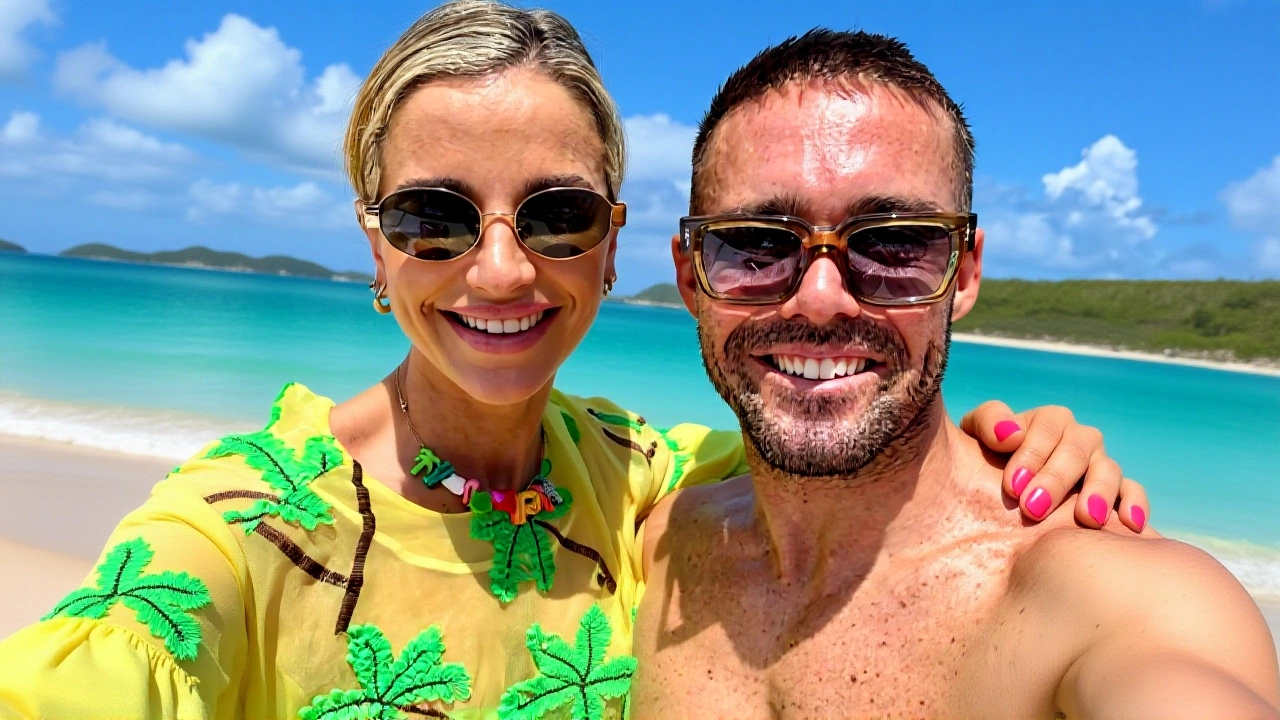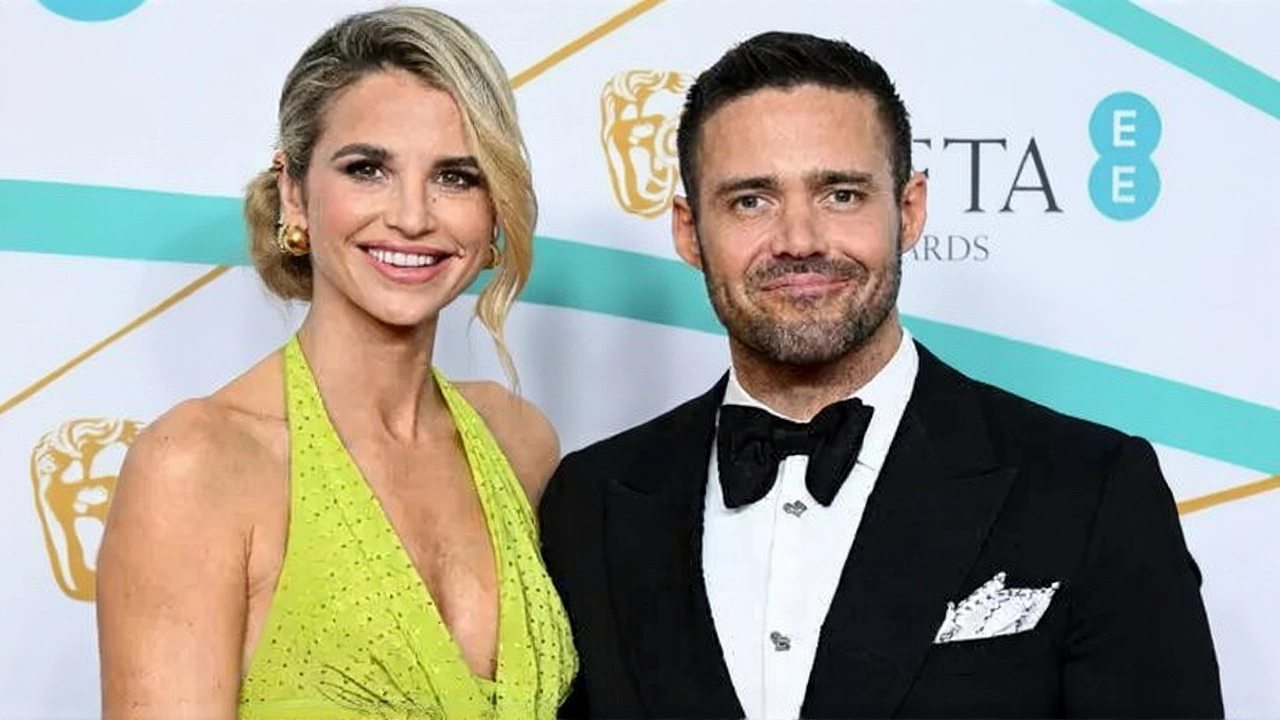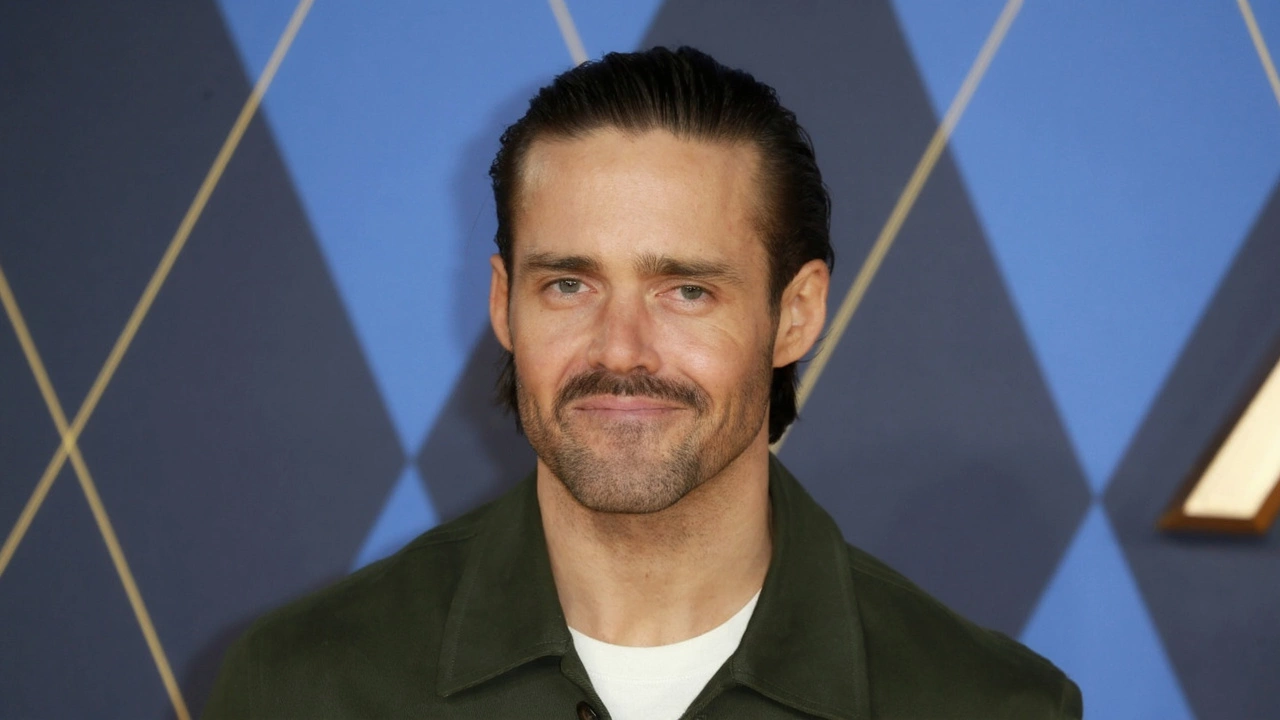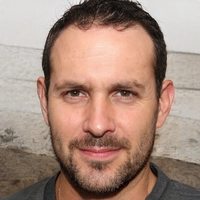When Spencer Matthews sat down on This Morning last week, he didn’t talk about drama on Made in Chelsea. He didn’t mention his engagement or his latest fashion line. He talked about money — or rather, the absence of it he plans to leave his children. "I won’t create trust fund kids," he said, in a moment that cut through the usual fluff of daytime TV. It wasn’t just a throwaway line. It was a declaration. And it’s stuck with people.
Why He’s Walking Away From Tradition
Matthews, a main cast member on the long-running E4 reality series Made in Chelsea, has spent over a decade in the public eye, navigating breakups, business ventures, and the glittering social scene of West London. He’s built a fortune through TV appearances, brand deals, and his own lifestyle brand. But here’s the twist: he doesn’t want his kids to inherit it. Not a penny. His reasoning, as confirmed by his verified Instagram account @spencermatthews, is rooted in something deeper than just anti-privilege rhetoric. "I want my children to earn their own sense of achievement," he posted. That phrase — "sense of achievement" — is the core of his philosophy. It’s not about punishing wealth. It’s about preserving purpose. This isn’t a new idea. Billionaires like Warren Buffett and Elon Musk have publicly said they’d leave their kids only a fraction of their fortunes. But Matthews isn’t a Silicon Valley titan. He’s a reality star from Chelsea. And that makes his stance feel more personal, more relatable. When someone who lives in a world of luxury says, "I’m not giving this to them," it hits differently.The Instagram Post That Cemented the Story
The LADbible article published on March 11, 2025, broke the news of his This Morning appearance. But the real punch came from his Instagram. The post, pinned to his profile, carries the exact quote: "@spencermatthews wants to make sure his children aren't 'trust fund kids' and earn their own 'sense of achievement.'" It’s written in the third person — a common tactic for celebrities to sound more reflective — but there’s no mistaking it’s him. No date was attached to the post. No caption explained further. Just those 14 words. And yet, in the comments, fans were split. Some called it "radical" and "inspiring." Others called it "harsh," wondering how he’d handle it if one of his kids struggled. He has two children, a son and a daughter, though their names and exact ages aren’t public. But that’s not the point. The point is the principle.What ‘Trust Fund Kids’ Really Means
The term "trust fund kids" carries baggage — the spoiled heir, the trust fund baby who never had to work a day in their life. But Matthews isn’t just rejecting wealth. He’s rejecting the mindset that comes with it: entitlement, lack of resilience, the quiet assumption that life will always hand you the next opportunity. In the UK, inheritance tax thresholds are £325,000 per person, rising to £500,000 if a family home is passed down. There are legal structures — trusts, wills, lifetime gifts — that could shield his fortune. He could leave his kids a modest sum, or set up educational funds. But he’s choosing none of it. He’s opting for zero. It’s not about money being bad. It’s about what money does to character. He’s seen the consequences of privilege firsthand, both in his own circle and on the show that made him famous. Made in Chelsea isn’t just about parties and relationships — it’s about how wealth distorts identity. He doesn’t want his kids to lose themselves in it.
What This Says About Modern Parenting
Matthews’ stance mirrors a growing trend among high-earning parents — especially those who came from modest backgrounds. They’re not just avoiding inheritance; they’re building a different kind of legacy. One based on grit, not gold. Think of it this way: if you grow up with a safety net, you never learn how to fall — and how to get back up. Matthews, who rose from a middle-class upbringing to reality stardom, knows the value of earning. He’s not rich because he was born into it. He’s rich because he showed up, every day, even when it was awkward, even when people mocked him. There’s something quietly revolutionary about that. In a world where influencers brag about their yachts and private jets, he’s choosing to be the parent who says: "I want you to build your own."What Comes Next?
The details remain vague. How will he structure his estate? Will he fund their education? Will he give them a small allowance to learn budgeting? Will he set up a business mentorship fund? We don’t know. He hasn’t said. But the intention is clear: no inheritance, no handouts, no safety net. It’s a gamble. What if one of his kids faces a serious illness or financial hardship? What if they want to start a business but need seed money? He’s betting on resilience over security. And that’s the real story here — not the money, but the courage to defy convention.
Legacy, Not Inheritance
Spencer Matthews isn’t cutting his kids out of his life. He’s cutting them out of his wealth. He’s leaving them something far more valuable: the belief that they are capable. That they can build something real. That they don’t need a trust fund to be enough. In a culture obsessed with legacy — designer handbags, vacation homes, luxury cars — he’s choosing something quieter. Something harder. Something that lasts longer.Frequently Asked Questions
Why is Spencer Matthews refusing to leave his children an inheritance?
Spencer Matthews believes that inheriting wealth could rob his children of personal growth and a "sense of achievement." He’s witnessed how privilege can erode motivation in the world of reality TV and wants his kids to earn their success, not inherit it. His stance is rooted in personal experience, not wealth redistribution ideology.
Does this mean his children won’t get any financial support at all?
Matthews hasn’t specified whether he’ll fund education, medical needs, or entrepreneurial ventures. His refusal targets direct inheritance — not support. Many parents in similar positions provide tools (like education or mentorship) without handing over cash. His exact plan remains private, but his public message emphasizes self-reliance over handouts.
How does this compare to other celebrities’ inheritance decisions?
Unlike Elon Musk or Jeff Bezos, who plan to leave heirs a small percentage of their fortune, Matthews is taking a more extreme stance — reportedly zero. His position is unusual for a reality TV star, whose wealth is often tied to personal branding. Most celebrities leave trusts for children; he’s rejecting the model entirely, making his approach stand out in celebrity parenting circles.
Is this decision legally binding or just a personal statement?
Until he signs a will or trust document, it’s a personal philosophy. UK law allows anyone to disinherit children, but courts can override this if dependents are left without support. Matthews may be planning legal steps to ensure his wishes are honored, but no documents have been made public. His Instagram post and TV comments are statements of intent, not legal instruments.
What’s the public reaction been like?
On social media, reactions are polarized. Supporters praise his integrity and anti-entitlement stance, while critics worry he’s setting his kids up for hardship. No major polls or surveys exist, but his Instagram post received over 200,000 likes and thousands of comments — many from parents who say they’re reconsidering their own inheritance plans.
Could this influence how reality TV stars handle money?
Potentially. Reality stars often face criticism for flaunting wealth. Matthews’ stance could shift the narrative from "look at my luxury" to "look at my values." If other stars follow suit, it might redefine what "success" looks like in the genre — not as accumulation, but as responsibility. For now, he’s the only one taking this public stand.

